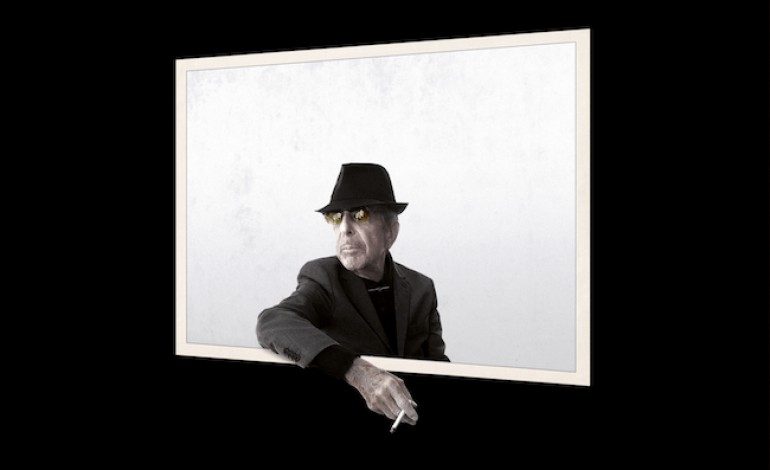

Shedding Light
Leonard Cohen’s newest offering, You Want It Darker, is a thematically unified album that makes a statement, both lyrically and musically. Distinctively, it offers the same vocal style that has always characterized Cohen’s work: a whispered, spoken-word method in which he clearly pronounces each syllable and letter. This unique delivery helps the album to achieve an immediately intimate relationship between its music and the listener, thus becoming the natural medium through which the religious nature of You Want It Darker can shine. As a result, Leonard Cohen clearly is the perfect artist to craft this album, which seems like an inevitable progression in his own creative journey, as he wrestles with both the spiritual and emotional aspects of his human experience.
A string section permeates throughout most of this album. Songs like “Traveling Light,” “It Seemed the Better Way” and “String Reprise / Treaty” are all great examples of the importance of violin in this album. “Traveling Light” begins with a particularly eclectic instrumentation, featuring violin, mandolin and bass. The mandolin is plucked rigorously at the song’s outset, giving it an Italian feel, reminiscent of something from The Godfather. A chorus of “la la”s periodically plays in the background, dramatically enhancing Cohen’s words. Finally, towards the end of the song, a jazz organ runs soulfully towards the right side of the stereo field. An important aspect of “Traveling Light” is that it varies dynamically between a climactic, full accompaniment and a sparse, verse-like Leonard Cohen sound. The eighth track of the album, “Steer Your Way,” continues in this same direction, featuring a strong string section throughout. Violins introduce the melody, while a bass rhythm beats out eighth notes. Toward the song’s refrain, the violins begin to dance together in a playful, square dance-like manner. By the end, the track feels more rocking and rhythmic, as the violins are given an opportunity to shine.
“It Seemed the Better Way” starts with a Gregorian chant-like melody, reminiscent of something one might hear in church. Eventually, a violin joins in, followed by a bass that accents these choral melodies. This song is impressive in its manipulation of space, as its instruments deftly maneuver through the acoustic spectrum. A hi-hat hits every other quarter note, but the song is hardly rocking, rather flowing like a river. Subtle hand-drum percussion is also featured to enhance this drum section. Ultimately, “It Seemed the Better Way” is You Want It Darker‘s most obvious example of spoken-word poetry, as its staccato, syllabic singing firmly captures the oral aesthetics of the art form. Cohen sings, “I better hold my tongue / I better take my place / lift this glass of blood / try to say the grace.” These are certainly poetic lyrics, and they are presented in a track that firmly promotes the poetic.
You Want It Darker is also bound by its strong religious overtones. For instance, “You Want It Darker,” “Treaty” and “Steer Your Way” all encompass religious imagery. The album’s title track, “You Want It Darker” begins with a choral setting, instantly transporting the audience into the space of a church. Its bass line maintains a subtle quality, emphasizing the spooky, deep-voiced vocals that color the song’s intro. Cohen sings, “I’m ready my Lord,” while the vocals are delivered in their usual rhythmic, whispered style. Traditional church instruments such as an organ are played in the background, helping the track capture a highly “organic” sound. These hymnal, church-like musical qualities help contribute to the religious feel of the album. “Treaty” has similar overtones. The song begins with a piano arpeggios that set its sonic soundscape. Meanwhile, violins and acoustic bass establish a certain sense of formality and seriousness. Cohen continues with his foray into the spiritual: “I’m so sorry for that ghost I made you be” (“Treaty” will eventually receive its own reprise at the end of the album).
Other songs on You Want It Darker seem to depart somewhat from Cohen’s usual slower, flowing sound. “On the Level,” for instance, features a delicate piano introduction, accompanied by palm-muted guitars. This is a striking departure from the instrumentation featured on the album up to this point. “Ooh”s and “aah”s float in the background, establishing a certain spaciousness. Cohen utters, “We were young, it took my breath away.” Obviously this song is about a romantic connection, as opposed to his relationship with the Lord, but it still hearkens back to Cohen’s emotional, poetic side. The album’s next track, “Leaving the Table,” opens with a reverberated, bluesy guitar riff played in 6/8 time. Cohen sings, “If I knew your name,” reinforcing the theme of searching that appears throughout the album. The song also reintroduces violins, contributing to a world music vibe. Cohen is definitely not afraid to experiment.
The last song of the album, “String Reprise / Treaty” is extraordinarily beautiful. It begins, as the title might suggest, with a romantic, classical violin, concerto-esque arrangement of the melody heard in “Treaty”. This track is quite moving, captivating the mind of the audience through the beauty of music. And as it nears its conclusion, Cohen sings, “I wish there was a treaty between your love and mine.” Cohen is begging for a covenant between himself and another soul for whom he seems to be lamenting, even until the very last moments of You Want It Darker.
